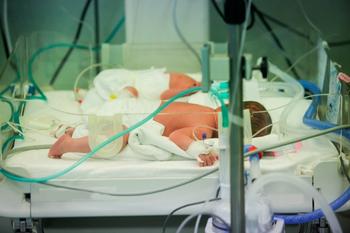
NIPT routinization and social pressure are major ethical concerns
The 'routinization' of noninvasive prenatal testing (NIPT) and the increasing pressure to test and/or terminate affected pregnancies are 2 major ethical concerns of NIPT.
The 'routinization' of noninvasive prenatal testing (NIPT) and the increasing pressure to test and/or terminate affected pregnancies are 2 major ethical concerns of NIPT, according to an article in the Journal of Perinatal Medicine.1
The authors from the Institute for Medical Ethics, History and Philosophy of Medicine at the University of Muenster in Germany advocate that “mindful decision-making should be a key educational goal” of NIPT counseling, which might be achieved through stepwise disclosure.
Indirect social pressure is the most likely threat to reproductive freedom, according to the authors. Ongoing efforts are needed to prevent such pressure, including ensuring a balanced availability of options. But restricting testing options and curtailing freedom of choice are not the solution.
From the beginning, the benefits of NIPT often have been linked to its routinization. However, the authors recommend omitting this vague term and instead to emphasize specified concerns to enable a meaningful debate about NIPT.
Furthermore, social pressure could eventually render NIPT as the social default, “so that women might no longer dare to decline the test,” wrote the authors. Such pressure “could potentially impair the voluntariness condition of women’s decisions about NIPT.”
Women mechanically choosing NIPT could be viewed as lacking mindfulness or deliberative diligence about the potential personal and moral consequences of a positive test result.
For informed consent, women need to understand they have the unlimited right to authorize or veto any intervention at stake. With prenatal genetic testing, invasive or noninvasive, pathological outcomes like a detected chromosomal aberration allow a pregnant woman the option of continuing an affected pregnancy or not.
However, autonomous decision-making, both before and after testing, “requires complex knowledge about testing, its possible results, its safety and reliability, and about the effects that genetic risks of disease or disability could have on the future child and its family,” wrote the authors.
But some other authors fear that autonomous decision making for NIPT causes information overload, while others believe that the procedure’s triviality might lessen the attention on careful and broad pretest disclosure by both physicians and test-using women.
Due to the risk of disclosure overload, stepwise disclosure can be valuable, perhaps including general information and exploring which genetic characteristics of the fetus are of interest to the pregnant woman, followed by desired concrete information.
“This approach could prevent inattentive or insufficient counseling as well as issues of information overload,” wrote the authors, noting that counselors should not assume sufficient ex-ante knowledge by patients or postpone any discussion on the potential termination of the pregnancy.
In addition, instilling non-directive counseling during their training and continued education is advisable, according to the authors.
Another form of pressure for women to submit to NIPT is the slow conversion of the test from an option for single cases to a screening tool that is considered part of a responsible and reasonable reproductive care regime. As a result, a woman’s decision to decline NIPT could gradually be viewed as careless, irresponsible, and even objectionable.
Because of the financial and emotional burdens of raising and supporting disabled children, plus the educational and health care support required, women may feel subtle pressure to undergo NIPT and subsequent selective abortions.
“Indirect unintended social pressure towards the less challenging and costly option of selective abortions should be seen as a real danger to both the autonomy of women and the human liberalism of society,” wrote the authors.
Reference:
1. Schöne-Seifert B, Junker C.Making use of non-invasive prenatal testing (NIPT): rethinking issues of routinization and pressure. J Perinat Med. Printed online August 31, 2021. doi:10.1515/jpm-2021-0236
Newsletter
Get the latest clinical updates, case studies, and expert commentary in obstetric and gynecologic care. Sign up now to stay informed.









